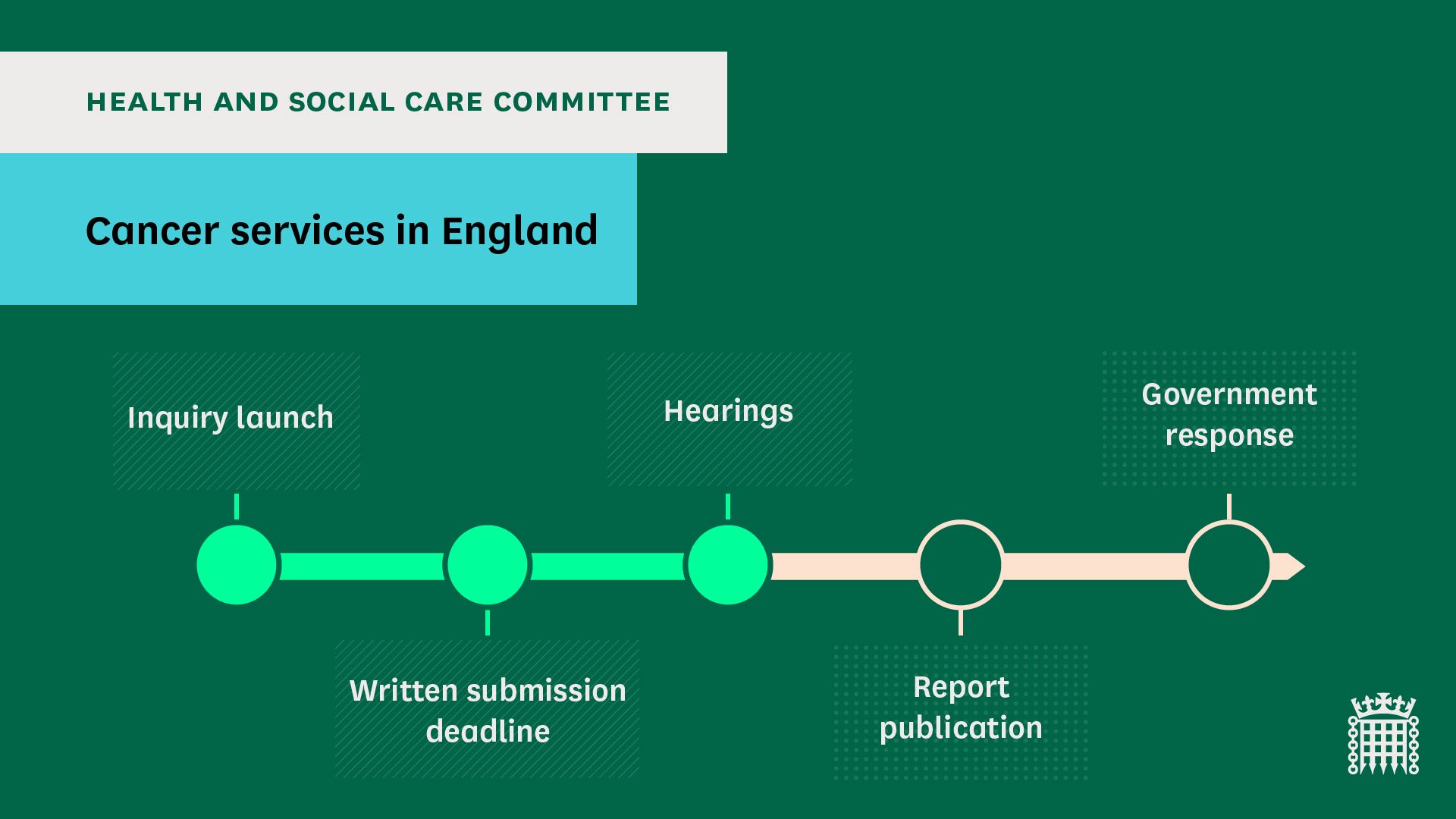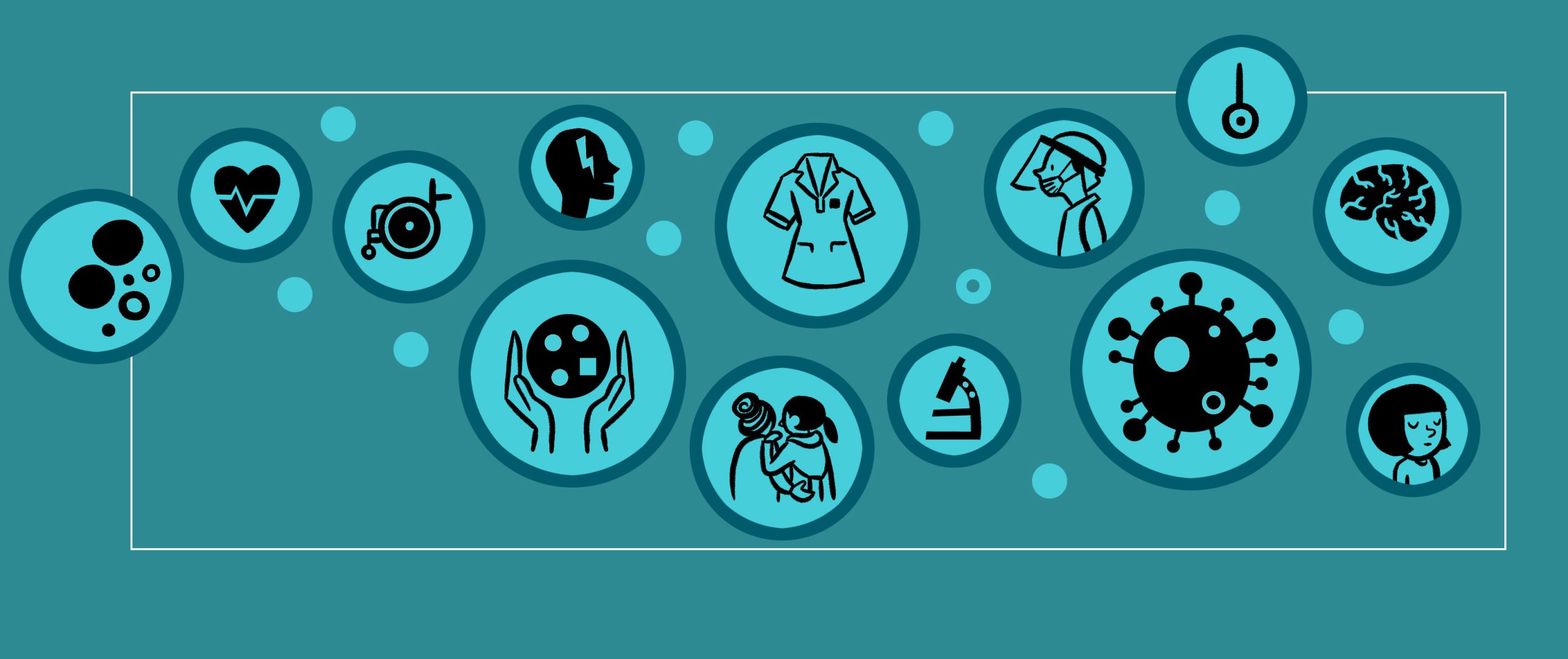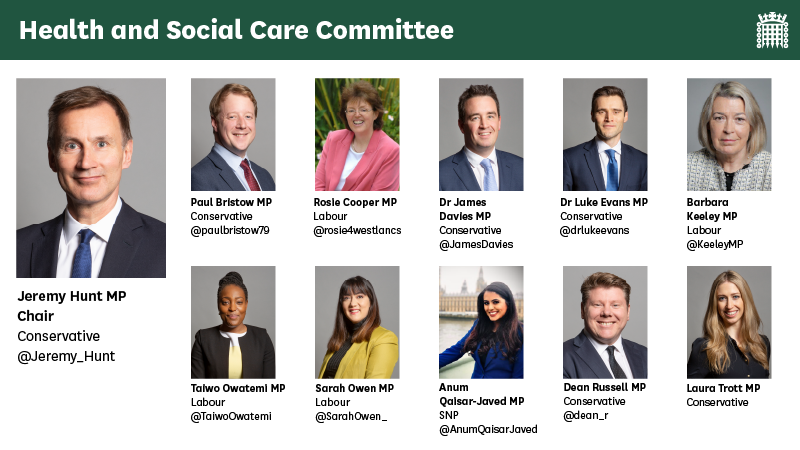How can the Government improve cancer outcomes in England?
The Health and Social Care Committee has launched an inquiry

Why has the committee decided to look into cancer services?
One in two people will be diagnosed with cancer at some point in their life.
The proportion of people in England who survive their cancer diagnosis has been improving over time due to advances in early diagnosis and treatment. 50% of people diagnosed with cancer now survive their cancer for 10 years or more – double the percentage who survived 40 years ago.
However, several studies have shown that cancer survival in England is lower than the best performing countries.
For example, five-year survival from colon cancer was 59% in England in 2014, according to a study by the International Cancer Benchmarking Partnership, a leading international research collaboration.
For the same type of cancer, survival in the other countries in the study was:
- Australia, 71%
- Canada, 68%
- Denmark, 65%
- Norway, 65%
- New Zealand, 62%
Why does England lag behind other countries?
One possible reason is that in England we tend to diagnose cancers at a later stage than other countries, and survival is generally higher when people are diagnosed at an early stage.
But this isn’t the whole story, because for some cancers like ovarian cancer, survival is worse than in some other countries, even when diagnosed at the same stage. This could mean there are problems in treatment.



The focus of our inquiry
Our inquiry will look in more detail at the reasons why the proportion of people surviving cancer for longer is lower in England, and ask what the Government and the NHS need to do to catch up.
We have asked anyone with experience and expertise in cancer services to send us their thoughts on the questions below:
- Why are cancer outcomes (like survival from cancer) in England – worse than similar countries internationally?
- How will covid-19 affect efforts to catch up to the best countries?
- Will putting the NHS Long Term Plan into practice mean England catches up with the best countries internationally?
Hearing from experts

Written submissions
The committee has assessed the written submissions received and noted the key points made. The submissions are published on our website and available for anyone to read.
Oral submissions
We have so far held four evidence sessions, which took place between July and November 2021. We have heard from experts, academics, staff employed in cancer services and people with experience of cancer. On 20 January 2022 we will hold our final session, questioning the Government and NHS England about the key issues raised in the evidence that we have received so far.

First oral evidence session

The first evidence session focused on the impact of the pandemic on cancer services and patients, and on how the UK compares internationally on cancer outcomes. During this session we heard that:
- The rate of new cancer treatments had remained at 91% of normal levels during the pandemic but that this varied by cancer type, with lung cancer treatments particularly affected.
- In Australia, one of the best performing countries in terms of cancer surviving rate, GPs have much better access to key diagnostic tests for cancer and patients have better access to specialist assessments, making early diagnosis more likely.
You can watch the session again online or read the transcript. A summary thread is also available on our Twitter page.
Second evidence session

During the second evidence session we asked the experts how to improve the early diagnosis of cancer in the NHS and where they think more research is needed. We also heard from Andrea Brady, who gave extremely moving evidence about her daughter Jessica, who tragically died from cancer in December 2020 after being diagnosed extremely late.
During this session we heard that:
- One of the biggest barriers to diagnosing more cancers early was having enough staff in the NHS to carry out tests.
- The Government’s target to diagnose 75% of cancers at an early stage by 2028 would be difficult to meet but that new technologies like a potential cancer screening blood test could make a big difference.
You can watch this session again online or read the transcript.
Third evidence session

During our third evidence session we heard from experts and from a cancer patient, Philippa Hetherington. We asked them whether NHS patients are able to access the latest drugs and treatments, and what role science and innovation can play in helping us to bridge the gap in survival rates between the UK and countries such as Australia and Denmark.
- Philippa Hetherington told us about the importance of funding drugs like Trodelvy, which could benefit her and other breast cancer patients, but has not yet been funded for use in the NHS.
- The experts agreed that the UK is among the best in the world for cancer research, but that the pandemic has had a significant impact on the capacity to conduct clinical trials.
You can watch this session again online or read the transcript. A summary thread is also available on our Twitter page.
Fourth evidence session

During our fourth evidence session we questioned experts on the issue of variation, including variation between cancer types and regional variation. We also heard from Katy Hall, whose rare cancer was initially misdiagnosed as a benign growth. We also heard that:
- Cancer Alliances have been set up to reduce the differences between different cancer services. They are having some success but workforce shortages are a challenge.
- Lung cancer was sadly particularly badly affected during the pandemic and many people presented with late stage cancer as a result.
You can watch this session again online or read the transcript.
What's next

We are in the process of analysing the written and oral submissions received to draw our conclusions. We will question the Government and NHS England about the key issues raised in our final evidence session on 20 January.
We will make recommendations to the Government on how to improve cancer survival in England, which will be published in a final report. The Government must respond to our report within two months of its publication.
You can follow us on Twitter, or check our inquiry page for future updates on the report.
The Health and Social Care Committee

What we do:
We scrutinise government and in particular the work of the Department of Health and Social Care. We also scrutinise the work of public bodies in the health system in England, such as NHS England and Improvement, Public Health England and the Care Quality Commission, and professional regulators such as the General Medical Council and the Nursing and Midwifery Council.
We do so by holding inquiries on specific topics and accountability hearings with the Secretary of State, and Chief Executives of relevant public bodies.
We ask questions and gather evidence, listen to witnesses, draw conclusions, make recommendations, and hold health and social care leaders to account for their actions.
Find out more about our work on our website.

